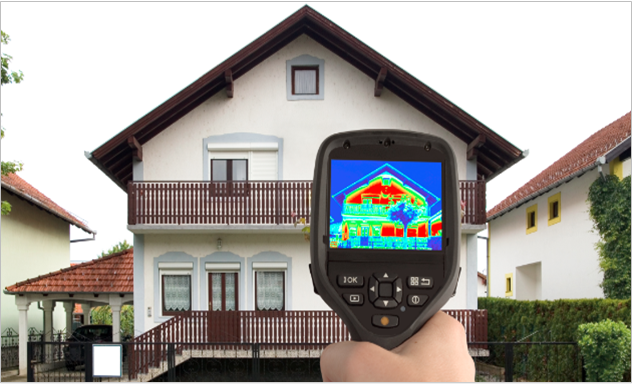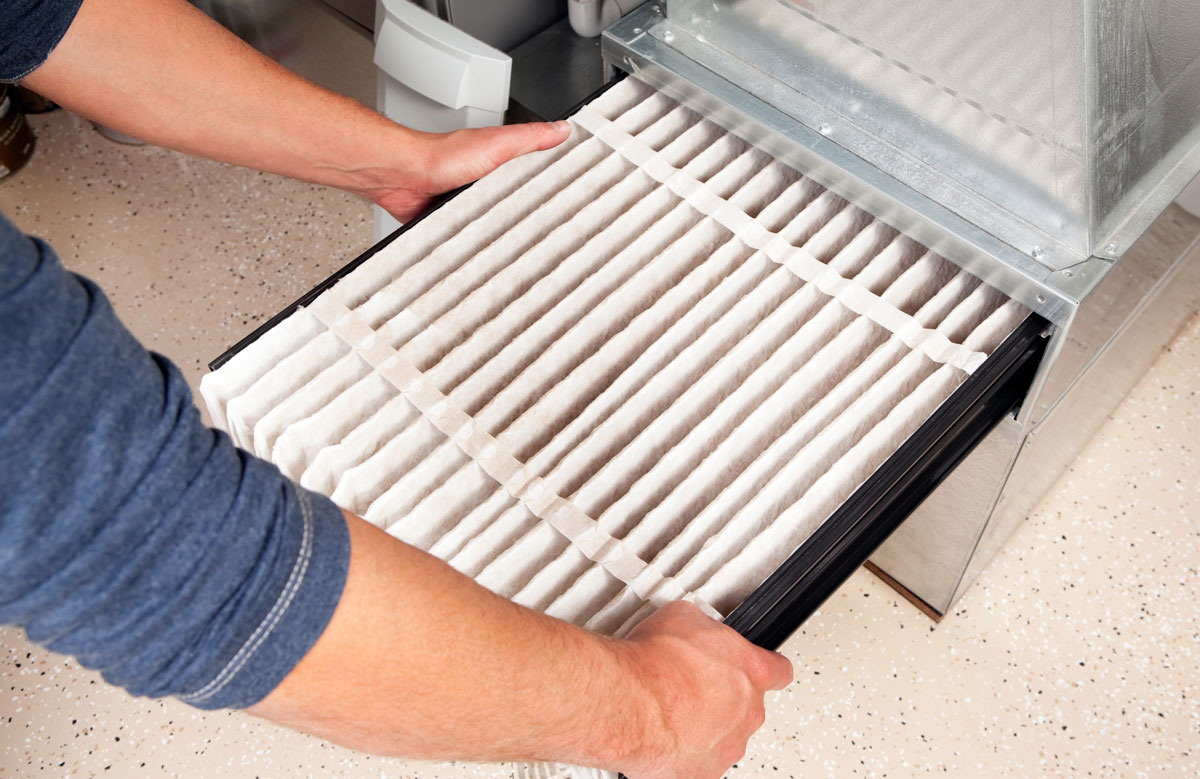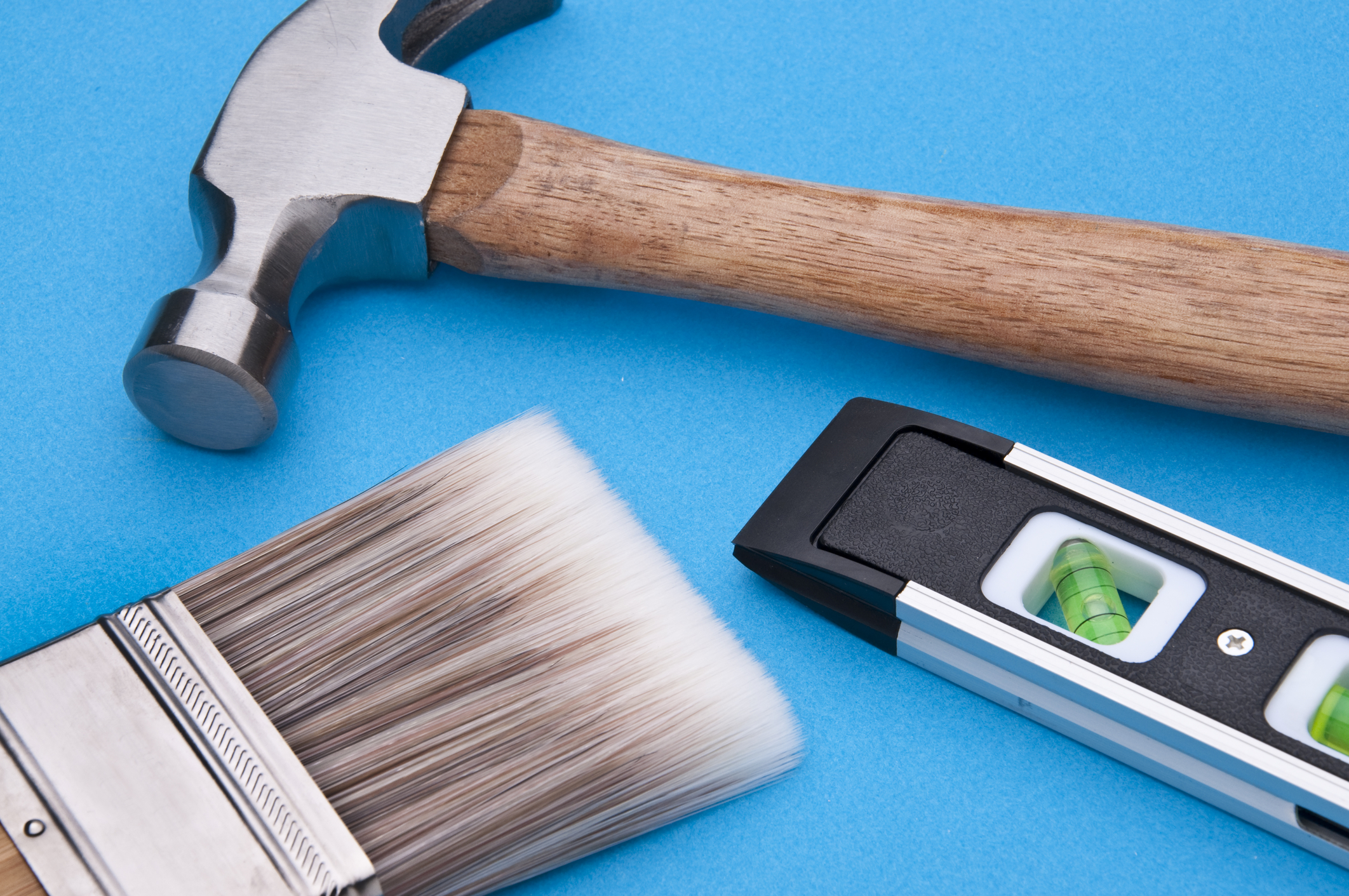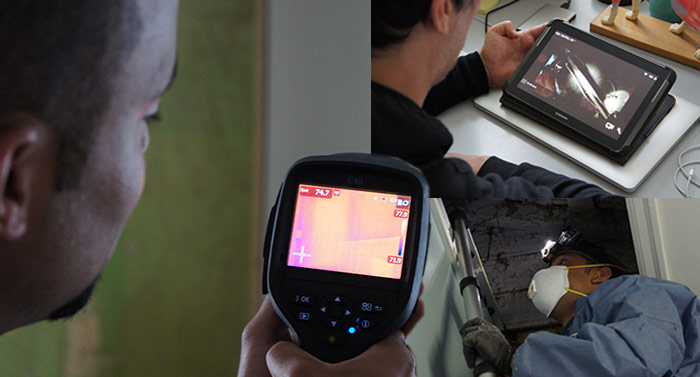
Indoor air quality—it matters
There are several factors that contribute to poor indoor air quality. Luckily, there are a few simple steps to combat this problem for healthier air at home.
What are some of the causes of poor air quality?
Understanding the sources of poor air quality is the first step in preventing it. The following list features just a few of these unfriendly culprits.
- Cleaning products and chemicals
- Insufficient circulation of fresh air
- Burnable items such as oil, gas, kerosene, wood, or candles
- Perfumed or aerosol products
- Smoke—from cigarettes, fireplace, or outside
- High moisture (this is especially hazardous in the PNW, as damp conditions can create a breeding ground for mold and mildew.)
How does it affect my family’s health?
Poor air quality can manifest in several health-related ways, including eye, nose and throat irritation, fatigue, dizziness, and headaches. More seriously, asthma symptoms—particularly in children—can be worsened. In serious cases, homes with poor air quality can contribute to respiratory or cardiovascular disease or cancer. In short, poor air quality shouldn’t be ignored.
What can I do to prevent poor air quality in my home?
If you suspect poor air quality in your home, don’t panic. Here are two of the easiest, most effective ways to circulate cleaner air.
Get your air ducts cleaned.
You might be surprised by the amount of dirt, debris, and hair that can build up in your air ducts over time. Air duct cleaning helps produce healthier air flow and reduces allergens in your home. Washington Energy Services recommends getting your ducts cleaned at least every two years—more frequently if the home contains smokers, shedding pets, water contamination, damage to HVAC system, residents with allergies or asthma, recent home renovations, or remodeling. Book a duct cleaning here.
Change your air filters regularly.
This simple task can make a big difference in your home’s air quality. While it would be easy to make generalizations about how often you should change your air filters, it just isn’t that easy. The frequency depends on the size of the filters, your HVAC system specifications and usage, whether you have allergies, the presence of shedding pets, and more. Lean on our experts to help you determine the right filter and frequency. Then sign up for our Automatic Filter Replacement Program for complete ease and peace of mind.
We’ll send you fresh filters when it’s time to change them out, saving you time and money, extending the life if your furnace, reducing your energy bills, and most importantly, helping you create a healthy home.
Schedule a Home Energy Audit.
Controlling where and how fresh air enters your home is a major concern when it comes to air sealing and making your home more energy efficient. The energy auditor calculates the required air changes per hour based on a number of factors including the size of the home and number of occupants. The auditor makes sure that the home has the required fresh air for the occupants and for the combustion appliances before and after the weatherization air sealing has been performed.
Strategic air sealing is used to prevent the infiltration of “dirty” or “contaminated” air. Top priorities are the obvious areas; garages, crawl spaces, attics and even basements in some circumstances. Learn more about our Home Energy Audits.
Your home’s air quality is crucial to the health of your family. Washington Energy Services has the products and services to help you breathe a little easier—and cleaner.
Related products
Suggested Reading
- 2016
- AC
- AC Installation
- AC Units
- AFUE
- air conditioing
- air conditioner
- air conditioning
- air conditioning maintenance
- air conditioning service
- air conditioning tune-up
- air duct
- air duct cleaning
- air handlers
- air pollution
- Air Purification System
- air purifier
- Air Sealing
- angie's list
- award
- basement Finishing
- Bathroom remodel
- BBB
- BBB Accredited Business
- before and after
- Best air conditioner
- best filters
- best generator
- best locks
- best water heater
- best window install
- boilers
- bryant
- Bryant AC
- bryant furnace
- bryant heat pump
- christmas lights
- clean air
- clothes drive
- Clothes For Kids
- coat drive
- combi-boiler
- comfort
- community
- Construction
- contractor
- contractors
- Cooling
- Cooling equipment
- Coronavirus Protection
- custom
- daikin
- deals
- discounts
- DIY
- Donation
- Donations
- door hardware
- door installation
- door replacement
- Door Transformations
- doors
- drafty home
- drain cleaning
- Duct Cleaning
- Duct Cleaning Services
- ductless
- Ductless heat pump
- ductless heat pump. mini-split
- Ductless heat pumps
- ductless heating system
- ductless heating systems
- ductless installation
- Ducts
- durable
- earth day
- eco friendly
- EER
- election
- electrical inspection
- emergency
- energy
- energy conservation
- energy efficiency
- energy efficiency rebates
- energy efficient AC
- energy efficient air conditioner
- energy efficient home
- energy efficient hvac
- energy efficient HVAC Systems
- energy efficient windows
- energy myths
- energy saving
- energy saving home products
- energy star
- energy tax credit
- environmentally friendly
- exterior doors
- exterior siding
- fall
- fall weather
- fiber cement
- fiber cement siding
- fiberglass doors
- filter
- filter change
- financing options
- fireplace
- fireplace insert
- fireplace repair
- fireplace tune-up
- front door
- furnace
- furnace filters
- furnace install
- furnace maintenance
- furnace mileage
- furnace problems
- furnace replacement
- furnace service
- furnaces
- Garage door replacement
- gas fireplace
- gas fireplace inserts
- Gas Fireplace Makeover
- gas furnace
- generators
- going green
- good business practices
- green solutions
- Guardian Maintenance Club
- gutters
- heat
- heat pump
- heat pump installation
- heat pump maintenance
- heat pump vs ac
- Heat Pumps
- heat pumps maintenance
- heat wave
- Heating
- Heating and Cooling equipment
- heating and cooling systems
- Heating Brands
- Heating Control
- Heating equipment
- Heating System Tuneup
- heatwave
- HEPA filter
- history
- holiday
- home
- home buyer
- home energy
- home energy efficiency
- Home energy efficiency solutions
- home exterior
- home heating
- home improvement
- Home Improvement Rebates
- home improvement repair
- home inspection
- home maintenance
- home maintenance checklist
- home maintence
- home performance
- home protection
- home repair
- home safety
- home upgrade trends
- home upgrades
- home value
- homeowners
- honeywell
- hot water
- hot water heater
- houzz
- how to
- HVAC
- HVAC Contractor
- HVAC Contractors
- hvac system
- IAQ
- indoor air quality
- infographic
- install
- install furnace
- insulated composite siding
- insulation
- intellihot
- interior doors
- james hardie
- kids
- Kitchen face lift
- LED light
- LED lights
- light bulb
- light bulbs
- locks
- mailbag
- maintenance
- march
- membership
- mini-split
- modulating furnace
- money saving
- money savings
- navien
- new door installation
- new home
- New homeowner
- new siding installation
- new windows
- news
- pacific northwest weather
- patio doors
- pets
- plank siding
- plumbing
- plumbing inspection
- pnw
- power
- power outages
- precision tune up
- preventative
- Pro Tips
- Programmable Thermostat
- Programmable Thermostats
- propane
- PSE Award
- PSE Energy
- PUD
- Q & A
- rain
- Ratings
- rebates
- refund
- REME Halo
- Remodel
- remodeling hacks
- Replacing Heating System
- reputation
- Safe Home Insulation
- sale
- save energy
- Saving money
- scam
- scams
- seamless
- seamless gutters
- seattle
- Seattle Weather
- SEER
- service
- services
- shingle siding
- Siding
- Siding replacement
- sliding glass doors
- Smart Home
- Smart thermostat
- smoke
- snow
- Solar Attic Fan
- solar power
- Solar Powered Light Strand
- sound
- spring
- standby generators
- storm doors
- summer
- summer fires
- Summer heat
- Summer home
- super service 2016
- tank water heater
- Tank water heaters
- tankless tune ups
- tankless water heater
- tankless water heaters
- tax rebate
- thanksgiving
- Thermostat
- tips
- trends
- tune-up
- upgrade
- upgrade cooling
- upgrade heating
- utilities
- utility rebates
- veterans
- Washington Energy
- washington energy services
- water conservation
- Water Heater
- water heater installation
- water heater maintenance
- water heater repair
- water heaters
- water leak protection
- Wildfire Season
- wildfire smoke
- window
- window energy efficiency
- window install
- window maintence
- window remodel
- window repair
- window replacement
- windows
- winner
- winter
- zone heating
- Air Conditioning
- Air Purifiers
- Cooling
- Doors
- Ductless heat pump
- Environmental
- Fireplace
- Furnace
- Gas fireplace
- Generators
- Heat pump
- Heating
- Home improvement
- How to
- HVAC
- Indoor Air Quality
- Insulation
- News
- Plumbing
- Rebates
- Seattle
- Siding
- Smart Home
- Tank water heaters
- Tankless water heaters
- Tips to save money
- Uncategorized
- Wildfire Season
- Windows




